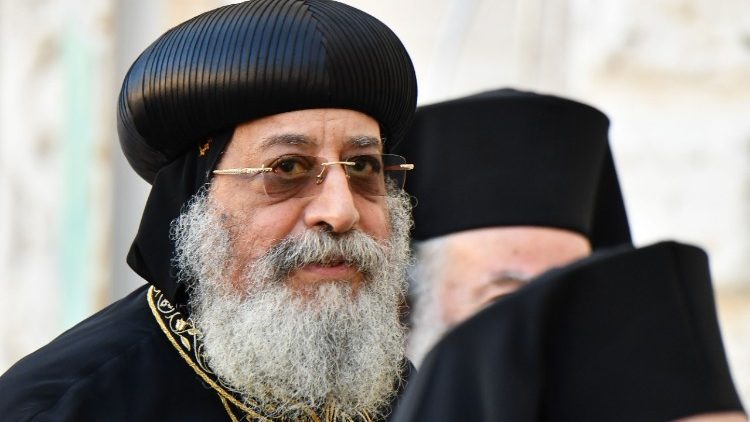New rules implemented following murder of Coptic Bishop
 With the motive behind the murder of Bishop Epiphanius of the Monastery of Saint Macarius appearing to be money, Pope Tawadros II has put in place new rules to enforce discipline within the Coptic Orthodox Church.
With the motive behind the murder of Bishop Epiphanius of the Monastery of Saint Macarius appearing to be money, Pope Tawadros II has put in place new rules to enforce discipline within the Coptic Orthodox Church.
After the murder of Bishop Epiphanius on July 29th in Egypt, Pope Tawadros II has implemented new rules for Coptic Orthodox communities in an attempt to protect discipline in monasteries.
Amongst these, there will be no new monks admitted for a whole year, and Coptic monks must delete their social media accounts.
Coptic Bishop Epiphanius, who was abbot of the Monastery of Saint Macarius was murdered on July 29th. One week later, after confessing to murdering the bishop, a young monk was expelled from the monastery and defrocked.
Christian Cannuyer, a specialist in Coptic Studies and Professor at the Lille Catholic University, spoke to Vatican News’ Manuela Affejee about the changes being implemented in the Coptic church as a result of this incident.
The risk of influencing a solitary life
Professor Cannuyer said that the basis of Coptic Monasticism has always involved living a solitary life, often practiced in the desert.
After the murder of Abbot Epiphanius, he said Pope Tawadros II is attempting to put rules in place that will aid in the protection of the members of the community from the external world. There are speculations that the motive of his murder may have been to do with money. The young monk had already been suspended for 3 years due to acts “incompatible with monastic conduct.”
No social media, no influence
Coptic Pope Tawadros has given members of the community one month to delete their social media accounts and has lead by example by deleting his own Facebook and Twitter pages. Cannuyer believes that one of the problems might be the contact with lay people outside the monastery.
Social media, he said, is a gateway to expressing, in an unmonitored and sporadic fashion, one’s political and personal opinions.
The aim of this measure is to guard monastic life as a condition of seclusion from the world. Anarchism and rebellion are often expressed through social media and rebellion against the Coptic Church is no exception.
Educated monks
Professor Cannuyer believes that Coptic monks entering monasteries nowadays have a much stronger formation than they did in the past. Most of them have a university degree. They are often architects, doctors and engineers. He said they also have a better theological formation since the majority attended “Sunday school”.
Pope Tawadros II hopes that these measures, amongst others, will help prevent such tragedies from occurring within the church in the future.
Source: Vatican News

